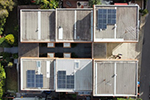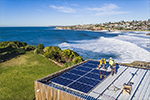- Home Home
-
Residents
Residents
- Waste & recycling Bins, clean-ups and disposing of tricky household items
- Parking Permits, car parks, maps and safety
- Your trees, plants & garden Tree pruning, native gardens and Living Connections
- Neighbourhood issues Report and resolve common issues
- Pets Dog and cat ownership, lost animals and off-leash parks
- Precinct committees Your local connection to Council
- Waverley LGA Maps Maps of the environment, planning zones and more
- Payments Pay for rates, certificates, permits and licences
-
Community
Community
- Children, youth & family services Early education, day care, support & resources
- Awards & grants Local Hero Awards, Garden Awards, Small Grants
- Get involved in your community Volunteering, creating connections, gardening
- Over 60s Services, activities, Mill Hill 60+ program
- Housing & homelessness Affordable housing, programs & support services
- Cultural diversity & inclusion Multiculturalism, language help, citizenship
- Aboriginal & Torres Strait Islander people Commitment to Reconciliation, plans & policies
- Disability inclusion Support services, access & inclusion projects
-
Business
Business
- Resources for Business Events, grants and support
- Tourism Home to Australia's most famous beach.
- Sponsorship Support local events
- Procurement Submitting tenders & expressions of interest to Council
- Commercial waste & recycling services Tailored waste services for business
- Mobile vending Waverley has limited mobile vending licenses
- Footpath Seating Permits Submit your application
- Hello Bondi Council’s website to help visitors enjoy their stay
-
Recreation
Recreation
- Events Browse performances, exhibits and experiences
- Places of interest Historic buildings, markets, dining and Bondi Pavilion
- School Holiday Programs Fun-filled activities, workshops and events.
- Beaches & coast Beach information, safety, pool cleaning schedules
- Parks & reserves Location, public facilities and accessibility
- Arts & culture Artistic vision, creative programs, spaces and awards
- Venue & sport facilities hire Book indoor venues and sport facilities in Waverley
- Use of public spaces Events, commercial activations, filming etc
-
Environment
Environment
- Council leadership on environmental action Research, strategies and Council programs
- Climate resilience and reducing emissions Switch to electric, go solar and grants for apartments
- Water and the coast Keep beaches clean, save water and enjoy the sea
- Towards zero waste Reduce waste at home and at work
- Public tree management & urban greening Street Tree Masterplan and planting zones
- Native vegetation and animal habitat Join Bushcare and enjoy Waverley’s natural spaces
- Transport Council policy, bike and car share, electric vehicles
- Second Nature Council’s environmental news and events hub
-
Planning & Development
Planning & Development
- Development Applications The DA process, key documents & community consultation
- DA Tracking Tool Search a Development Application by number or date
- Application forms & certificates incl Planning, Rating, Construction and Occupation
- Waverley Local Planning Panel (WLPP) DA determination panel
- Compliance and regulations incl fire safety, food, pools and pollution
- Heritage incl Heritage Conservation Areas and fact sheets
- Urban planning and design Making Waverley a great place to live and work
- Major projects Council-delivered buildings, streets and parks
-
Council
Council
- Organisation structure Four directorates serve the community
- Mayor & councillors Your Mayor, Councillors, wards and contact details
- Council & committee meetings Dates, agendas and minutes of meetings of Council
- Advisory committees Advisory Committees of Council
- Policies, plans, strategies and reports Council's vision and delivery
- Jobs Current vacancies and working at Waverley
- Access to information Gaining access to publicly available information
- Payments Pay for rates, certificates, permits and licences
- Home
- >
- Environment
- >
- Climate resilience and reducing emissions
- Council leadership on environmental action
- Climate resilience and reducing emissions
- Water and the coast
- Towards zero waste
- Public tree management & urban greening
- Native vegetation and animal habitat
- Transport
- Second Nature
Climate resilience and reducing emissions
Human-induced climate change has produced a climate and biodiversity emergency and urgent action at all levels of government is necessary to protect our environment and community for future generations.
The growth of greenhouse gas emissions from fossil-fuel generated energy, transport, waste disposal and land use are causing more frequent and extreme weather events such as bushfires, sea level rise, loss of wildlife and economic impacts.
In 2019, Waverley declared a Climate and Biodiversity Emergency, committing to accelerate our greenhouse gas emission reduction plans and integrate adaptation and resilience measures to restore a safe climate and repair ecosystems.
That’s why Waverley Council is striving for Net Zero greenhouse gas emissions in the community by 2035, which is reliant on all residents, businesses and community organisations making incremental but significant changes to the way we live.
'Net zero' refers to a balance between the greenhouse emissions produced and the emissions taken out of the atmosphere. Achieving net zero will not stop the impact of climate change, for instance temperatures are still expected to rise by at least 1.5°C, but it will limit the severity of the changes. Preparing for and adapting to climate change will make our community stronger, more resilient and safer.
In practice, reducing greenhouse emissions also often results in saving money over the long term, so Council and other government bodies are supporting residents to improve energy efficiency, go electric and to go solar. Browse how to contribute below.
-

Building Futures program
A free Council program to help larger strata buildings (25+ units) save money on their common area energy and water bills, including access to matched funding.
-

Climate resilience
Taking action to adapt to changing climate, and protect ourselves and assets from the increasing risks of current and future climate shocks.
-

Go electric
Switching from using fossil fuels such as gas and petrol/diesel to all-electric homes and businesses powered by renewable energy.
-

Go solar
Supporting residents to get rooftop solar through education resources, advice and support.
-
Solar Health Checks


